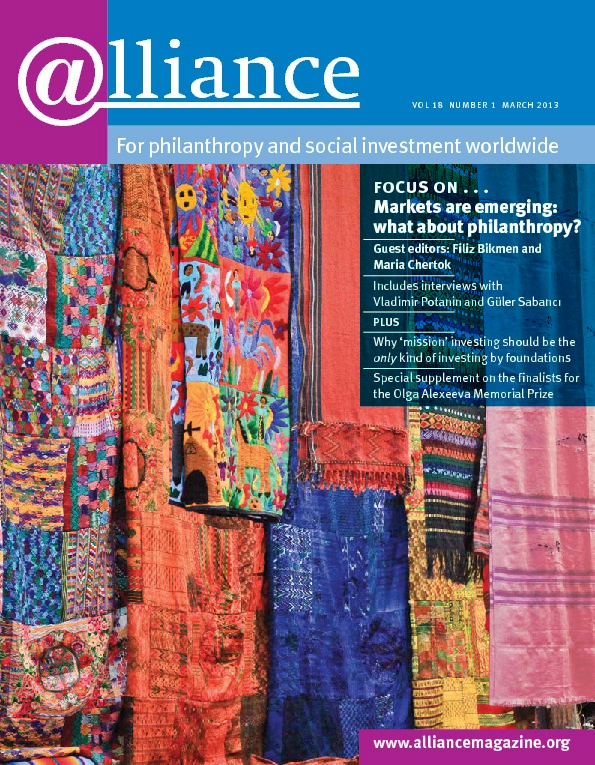‘There is not much collaboration on the donor level currently [in India]. Dasra is supporting this unique proposition through its giving circles.’ This was the conclusion of one Indian Philanthropy Forum member in an interview last year.
In India, the last three years have seen a surge of interest in philanthropy. It is a small surge given the size of India and its social issues but it’s an important one that has grabbed a few headlines and sparked conversations across media channels, conferences, research papers and dinner parties. Between March 2010, when the first Indian Philanthropy Forum conference was held, and the third in March 2012, there was a fourfold increase in media mentions of ‘strategic philanthropy in India’. Perhaps more than philanthropy per se, the interest is to do with the need for systemic change and social problem solving, with individuals asking themselves what role they should play in developing a more equitable India.
For 13 years, Dasra has worked with multilateral donors, large international foundations, local foundations and companies, but recently our work with individuals, particularly with donors based in India, has increased dramatically. At the heart of our approach with individuals is the Dasra giving circle, a collaborative grant-giving model that offers not only funding but also management skills, networks, pro bono advisory services and influence.
To date, Dasra has four active circles focused on girls’ access to education, quality education in urban slums, child malnutrition, and adolescent girls’ empowerment in one of the worst states for gender inequality, Uttar Pradesh. We are also near to closing a fifth circle focused on urban sanitation, and two further circles are open for membership, focused on building technical and vocational skills in rural schools, and livelihood improvement in the arts and crafts sector.
Each circle has as its catalyst an in-depth ALISsector research report that maps the issue, gaps in provision and funding and identifies organizations with scalable solutions and a demonstrated track record. Donors are then approached to join a circle that will base its giving on the report’s recommendations. The circle is closed once 10 members have made an annual commitment of £16,000 a year for three years (£50,000 over the funding period). With £500,000 committed, the circle members analyse three or four business plans written by Dasra’s portfolio team. It is understood that the funding will support an aggressive growth plan, backing not just the programme but the infrastructure and organizational development required to fulfil the plan and dramatically scale up operations. Circle members then vote and the successful organization receives the circle fund.
Dasra’s members span the globe, with individuals and foundations joining from Singapore, the USA, the UK and Europe alongside a majority membership from India. For international donors, the value is in the collaboration with Indian donors, who are closer to the problems and able to share on-the-ground realities, and a real cultural and social context to the issues and solutions to be funded. They can also bring skills, networks and other forms of strategic advice to the circle organization more easily than international donors – critical to this strategic and problem-solving approach. The collaborative model also brings transparency and accountability.
Through circle participation members have reported an increase in their knowledge of the social sector and the importance of a strategic approach. Over 75 per cent of giving circle members in a recent survey said they had enhanced their skills to manage their philanthropy – improving their ability to structure their funding and to simultaneously deploy their management skills and networks to support those funded.
We are perhaps too early for more formal philanthropy ‘education’ in India, but the giving circles provide a platform for active learning while giving. The group is able to share any risk and multiply the impact of their philanthropy by 10 times in absolute financial terms and many times more in terms of skills and influence.
As giving circle member Lynne Smitham remarked in Philanthropy UK (autumn 2012): ‘Where it is suitable, giving together magnifies the power of philanthropy and multiplies the pleasure of the experience as part of a community. We believe a successful giving circle is greater than the sum of its parts.’
Alison Bukhari is Director, Dasra UK. Email alison@dasra.org
For more information
http://www.dasra.org/Dasra-Giving-Circles
http://www.dasra.org/Research-Reports






Comments (0)